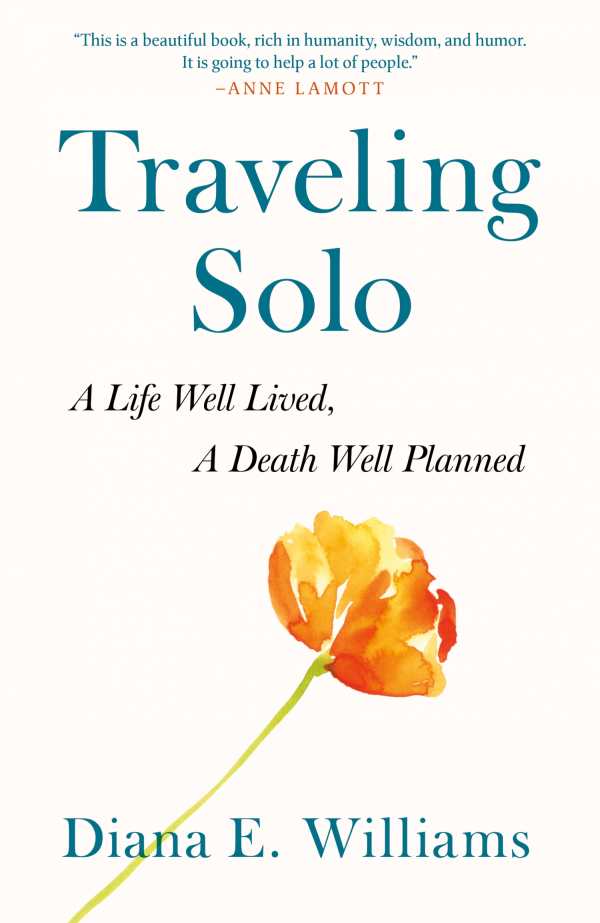Traveling Solo
A Life Well Lived, A Death Well Planned
Empathetic and persuasive, the memoir Traveling Solo shares an end-of-life story alongside a cautionary tale about avoiding the false promise of phony cures.
Written in anticipation of her planned death, Diana E. Williams’s memoir Traveling Solo is a personal response to the question of whether human beings have the right to end their own lives.
Williams led a rich and varied life of international travel, professional success, and public service that changed in the face of a mysterious chronic illness. The condition continued to flare up for thirty years. It interrupted her work, family, and social life. Her ongoing, desperate search for a diagnosis, a cure, or even a palliative treatment—“a roller coaster of excitement and disappointment”—centers her emotive text. As each new treatment failed, the cycle began again. Her experiences became so repetitive and exhausting that, after decades of seeking relief, Williams arranged for an assisted suicide through a Swiss nonprofit organization; she also planned for this memoir’s publication after her death.
Secondary to this story of struggle and release is the book’s exposure of a booming industry of phony “cures,” pitched to suffering people with money to spend. Williams encountered a number of such deceptive people, some of whom she found via the internet and some who were recommended to her by trusted physicians. Indeed, profit-driven health-care providers are charged with making her vulnerable to such charlatans: “For every diagnosis there was always someone to dismiss it and suggest a different one … for every proposed treatment, someone else to scoff at its effectiveness and promote yet another.”
Throughout her experiences with chronic illness, Williams writes that she was well supported by her loved ones, including her husband, friends, and her two daughters. Expressions of love and gratitude for these relationships pervade the book, though the individuals themselves are not fleshed out beyond these contributions. Still, the prose is precise and empathetic, describing physical sensations with clarity and proving observant on subjects ranging from the personal to the general, including with its descriptions of medical personnel and places. The result is an intimate account of of chronic illness that advocates with conviction to give all people the right to die on their own terms.
Tough even in the face of death, the memoir Traveling Solo is a story about a decades-long struggle with chronic illness after which a determined woman reclaimed her personal sense of control.
Reviewed by
Michele Sharpe
Disclosure: This article is not an endorsement, but a review. The publisher of this book provided free copies of the book and paid a small fee to have their book reviewed by a professional reviewer. Foreword Reviews and Clarion Reviews make no guarantee that the publisher will receive a positive review. Foreword Magazine, Inc. is disclosing this in accordance with the Federal Trade Commission’s 16 CFR, Part 255.

